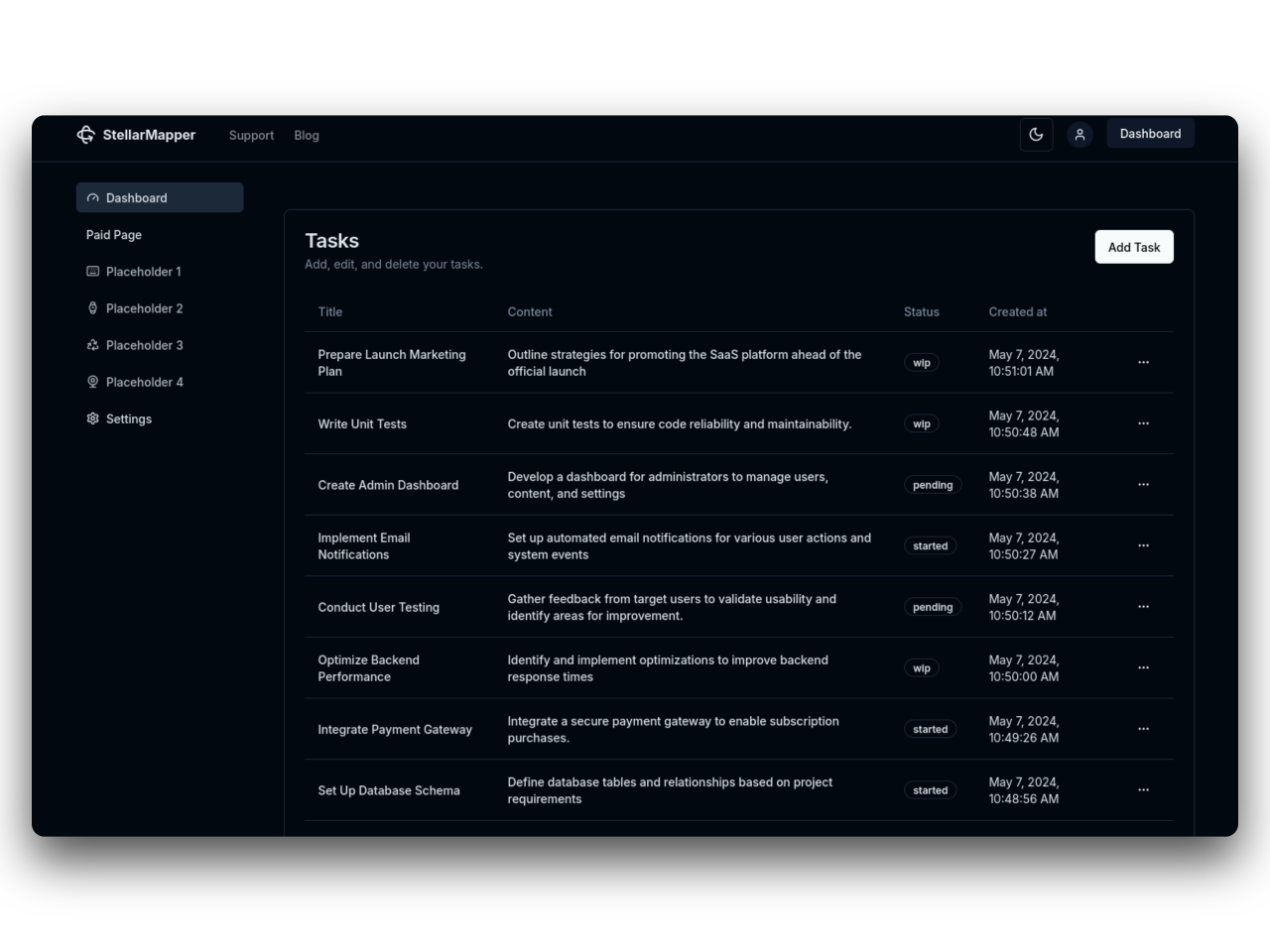Top Third-Party Integrations for Your Next.js SaaS
Next.js has established itself as one of the most popular frameworks for building server-rendered React applications. With its ability to handle server-side rendering (SSR), static site generation (SSG), and many other robust features, it’s a great choice for creating Software as a Service (SaaS) applications. However, to leverage the full potential of your Next.js app, integrating third-party services can greatly enhance your functionality, improve user experience, and streamline your development process.
In this blog post, we will explore some of the top third-party integrations that can elevate your Next.js SaaS application to new heights.
1. Authentication and User Management
Auth0
Auth0 is a widely-used authentication platform that allows for secure user authentication and authorization. With features like social login, passwordless authentication, and multifactor authentication (MFA), it provides a flexible solution that integrates smoothly with Next.js. The seamless integration process and extensive documentation make it easy to implement in your SaaS application.
Firebase Authentication
Firebase Authentication provides a suite of features that allow easy and secure user authentication, including email/password login and social media logins. Its SDK works well with Next.js and is perfect for developers looking to get up and running quickly. Firebase also offers additional services like Firestore, making it a robust choice for full-featured applications.
2. Database Solutions
MongoDB Atlas
MongoDB Atlas is a cloud database service that offers flexible data storage, replication, and scaling. The integration with Next.js can be achieved through the use of Mongoose or the native MongoDB driver. With features like real-time updates and a user-friendly interface, MongoDB Atlas is an excellent choice for applications that need to manage large volumes of unstructured data.
PostgreSQL with Prisma
PostgreSQL is a powerful relational database system, and Prisma is an ORM (Object-Relational Mapping) that makes database operations easier in Next.js apps. Prisma's type-safe queries streamline the development process, while PostgreSQL’s features like JSONB columns, foreign keys, and transactions ensure data integrity and performance.
3. Payment Processing
Stripe
When it comes to payment processing, Stripe is arguably the go-to solution for developers. Its extensive API allows you to handle everything from subscriptions to one-time payments and even complex billing scenarios. With several SDKs available and excellent documentation, integrating Stripe into your Next.js app can enhance user experience by providing a smooth checkout process.
PayPal
PayPal is another popular payment processor that offers easy integration with Next.js applications. The PayPal JavaScript SDK allows you to add PayPal buttons to your SaaS app, enabling users to make payments quickly and securely. PayPal's widespread use also increases trust among users, which can lead to higher conversion rates.
4. Email Services
SendGrid
SendGrid provides an excellent platform for sending transactional emails, marketing campaigns, and newsletters. With its robust RESTful API, integrating email notifications and alerts in your Next.js application is straightforward. Additionally, SendGrid offers analytics on email performance, allowing you to optimize your email strategy over time.
Mailchimp
Mailchimp offers email marketing automation which can be crucial for customer retention and engagement. By integrating Mailchimp with your Next.js app, you can manage subscribers, create custom campaigns, and analyze your email performance, ensuring that your communicative efforts resonate with your audience.
5. Analytics and Monitoring
Google Analytics
Google Analytics is a powerful tool for understanding user behavior and tracking conversions. Integrating Google Analytics into your Next.js application allows you to see how users interact with your app. By monitoring key metrics such as page views, user sessions, and demographics, you gain valuable insights that can guide your development and marketing efforts.
Sentry
Sentry is an application monitoring platform that helps developers track and fix application errors in real-time. For any SaaS product, user experience is paramount, and Sentry helps you maintain that experience by identifying and diagnosing errors quickly. Integrating Sentry into your Next.js app ensures that you can address issues before they become widespread.
6. Hosting Solutions
Vercel
Vercel, the creators of Next.js, provide an optimized hosting solution designed specifically for Next.js applications. With features such as automatic scaling, serverless functions, and edge caching, hosting your SaaS app on Vercel guarantees performance and reliability without extensive configuration.
Netlify
Netlify is another seamless hosting solution that offers continuous deployment, serverless functions, and a robust CDN. Integrating your Next.js app with Netlify can streamline your development workflow and help ensure that your SaaS platform is always accessible and performant.
Conclusion
Integrating the right third-party services can significantly enhance your Next.js SaaS application, providing essential features and functionality that improve user experience while reducing development time. Whether you're focusing on authentication, payment processing, database management, or analytics, choosing the right tools can make all the difference.
Remember to evaluate your application requirements and the needs of your users before selecting integrations. With the diverse range of options available, you’ll be able to build a scalable and feature-rich SaaS application that stands out in the competitive landscape.
Happy Coding!
In conclusion, creating a Next.js SaaS application opens up a world of possibilities, especially when paired with powerful third-party integrations. Utilize these tools wisely, and you’ll be on your way to developing a robust, user-friendly application that meets the demands of your users.
